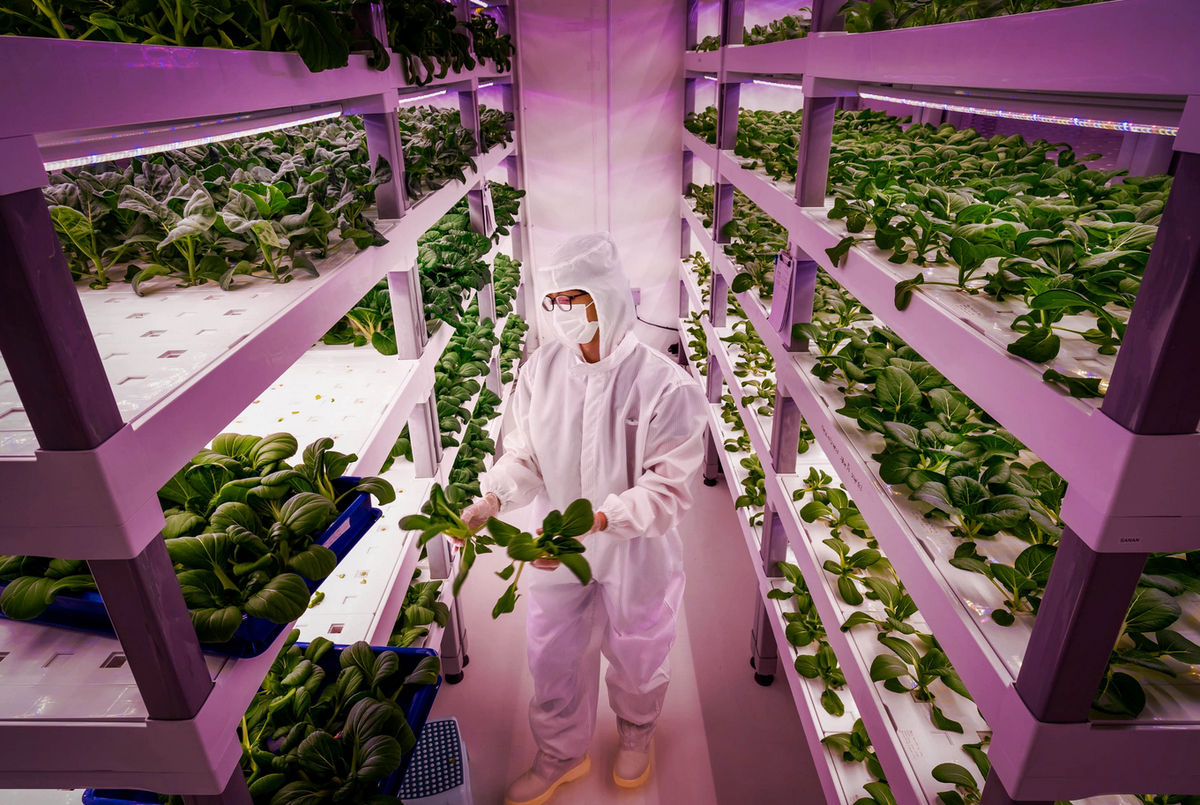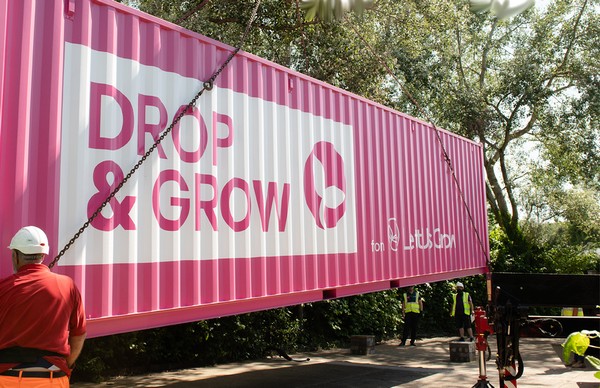Is Growing Food Indoors The Future of Farming?
The global population is predicted to reach 9.7 billion by 2050 and with climate change affecting how well crops are growing, farmers are looking for new solutions on how to support the food supply chain.
Climate change is affecting crops because of rising temperatures, droughts and flooding – all factors that are affecting how well farmers can produce crops. With this in mind, farmers are starting to look at indoor farming and whether or not it will be able to support their livelihood and the supply chain.
What is indoor farming?
As the name suggests, indoor farming is when you grow and produce crops inside. The operation is on a large scale and uses methods such as hydroponics and artificial lights to provide plants with the nutrients and light levels required for growth.

The process of indoor farming
Vertical farms are when you stack crops in specially designed beds and trays in a controlled environment, using artificial lighting to achieve the desired results. The benefits of vertical farming are that you utilise the ‘air space’ and are able to grow more.
This method allows farmers to provide fresh and healthy produce, 365 days of the year without being affected by the extreme weather. There are also opportunities for urban entrepreneurs and those who are looking to diversify, converting that empty barn space into something that they could use.
Another benefit of indoor farming is that you create the environment for the crops to live in. Therefore you can make the perfect conditions and increase yield.
What type of technology is used for Indoor Farming?
As you will need the perfect environment for the plants to go, technology can step in to ensure to create the conditions that you need, reduce any risks and automate areas to rule out human error.
Examples of some of the technology involved with indoor farming:
- Smart sensors to monitor technical variables (temperature, carbon dioxide, oxygen, lighting, humidity nutrient, pest control, pH, irrigation).
- Cameras and thermal imaging
- Dosing systems to automate the delivery of nutrients
- Sterilisation systems
- Chemical disinfection (sterilise surfaces, transporting equipment and tools)
- Lighting
- Air control to ensure a CO2 enrich ozone for the plants to grow
- Watering automation systems
What are the main costs involved with vertical farming?
The initial costs to get started are most likely to be your biggest expense and it will also depend on the scale of the operation.
Whilst operations costs will depend on how you’re running your facilities. A big proportion of your cost will be on energy, especially if acritical lighting is the only source of light. The costs will involve the energy provider and the efficiency of the bulbs. Bulb with higher efficiencies will produce more light for less power.
The other main operating costs will be the labour and who will be running the farm. You can keep costs down by running it yourself if you have the knowledge and experience to do so.

LettUs Grow Container
Is this method being used in the UK already?
Edinburgh based Shockingly Fresh has opened a vertical farm in Offenham, Worcestershire. The company has plans to open more vertical farms across the UK and their plans for a 32 acre site in West Calder is forging ahead.
LettUs Grow was founded in 2015 and went from a small aeroponic grow at home kit to a 40ft container farm. With the mission to reduce the waste and carbon footprint of fresh produce, the pink containers are popping up across the UK with new projects underway.
Lastly, vertical farming is becoming increasingly popular in the UK leading to several universities offering courses on vertical farming, urban agriculture and gardening. Moreover, some universities have also opened research centres for urban agriculture and vertical farming.

Financing the Future of Farming
If you’re interested in indoor farming, diversifying your farm, letting out holiday lets in the UK or just looking to purchase new machinery, farm vehicles, renewable assets or livestock, we’re confident that we’ll be able to find a finance solution. We have an experience in financing the agricultural sector and supporting rural businesses with their plans and business’ needs.
Don’t hesitate to get in touch with our team today!
Address
Amplo Group
11 Mallard Court, Mallard Way,
Crewe, Cheshire, CW1 6ZQ
Join Our Mailing List
See our privacy notice for more information on how we take care of your information.
